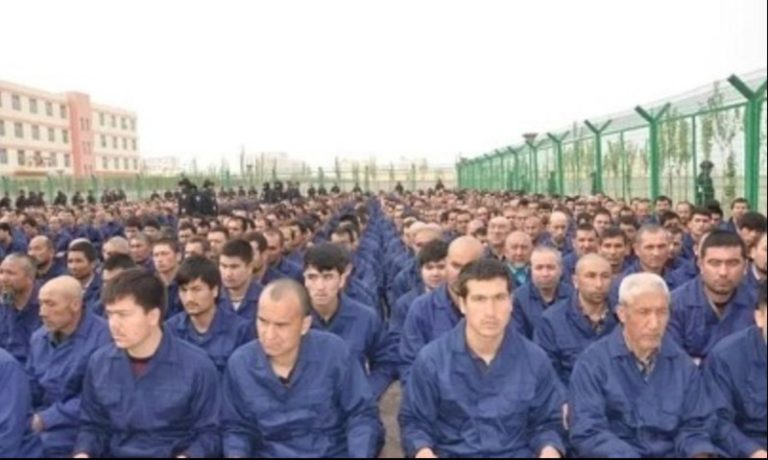Chinese authorities are currently experiencing a “mission accomplished” moment in the Uighur region. One of the key ways to get that message across is through tourism. Tourists indicate that the space is open for business and everything is normal. From the record number of visitors to the regional capital in 2023 to Wang Wenbin's exhortation to “encourage more friends from all countries to visit Xinjiang,” Chinese state media can't say enough about tourism.
The problem is that crimes against humanity continue to target Uyghurs and other ethnic Turks. Another problem is that international travel companies, including those in Europe, are complicit in cleaning up atrocities that have been labeled genocide by multiple organizations.
It's very simple: the travel industry needs to wake up and stop collaborating with genocide.
In my January 2024 report, I profiled 18 European travel companies from France, Germany, Italy, Spain, Switzerland, and the Netherlands that are currently advertising tours to the Uyghur region. The study built on previous research that documented seven travel companies based in Australia, North America and the UK that advertise travel. Two of the seven companies subsequently canceled their itineraries.
My methodology was simple: Google search. This shows that finding a tour is not difficult and is well accepted.
However, there are some concerns with these tours. Destinations on the itinerary, including Kashgar, Turpan and Urumqi, have been linked to crimes against humanity. These include the suppression of religious beliefs and the destruction of cultural heritage belonging to Uyghurs and other Turkish communities, as well as widespread racial profiling, surveillance, internment, imprisonment, torture, sexual assault, and death in custody. This includes people.
Some tours offer “experiences” that are intrusive and problematic for tourists, such as visits to Uyghur homes. Given the prevailing atmosphere of securitization and the extrajudicial punishment system, would any Uyghur family say no to a local partner travel agency organizing such a visit?
When I raised these concerns with 18 European travel companies, not a single one responded.
China is leading the world in reporting that its “re-education” policies in the Uyghur region have been highly successful in curbing “extremism.” Along with tourism, stories of reformed and more productive Uyghurs abound in state media. However, a self-declared victory is an answer to a self-declared problem. George Washington University professor Sean Roberts said Beijing's crackdown on extremism is problematic because it is unclear whether there was an organized terrorist threat to China.
Choreography tour with “influencers”
Nevertheless, China has pursued an “inside-out, outside-in” policy, sending carefully selected Uyghur influencers and envoys around the world, and sending journalists, diplomats, and academics on highly planned tours. are invited to.
The story of a cleansed and safe Uyghur people and their region invites us to forget the brutal oppression of the past seven years and believe in a new normal. It's business as usual, untroubled by hapless Uyghurs.
Since China lifted pandemic travel restrictions in 2023, trips to the Uyghur region advertised by European travel companies have appeared on the internet. The invitation to stop thinking about crimes against humanity and go about our business as if nothing had changed proved too tempting.
When the issue of tours to the Uyghur region came up, travel companies claimed to the media that they “no longer offer tours” or “haven't offered tours in recent years.” However, due to coronavirus lockdowns, travel companies have been unable to visit China between 2019 and 2023, and the continued promotion of tours on their websites has damaged their commercial reputation. Why not take them down? This issue is important because travel companies' online promotional materials reinforce China's folkloric and pre-modern depiction of the Uyghurs. The years of oppression of the Uyghur people are partly premised on the developmentalist Chinese state's mission to “reform” the Uyghur people.
However, some companies profit from the genocide and run tours to the Uyghur region. Some cover up China's destruction of Uyghur cultural heritage to attract customers. The widely condemned rebuilt old town of Kashgar, which was demolished and confiscated, has become a tourist attraction and has been described as “tasteful” by Dutch travel agency Ricksha Travel.
It is not difficult for overseas travel companies to solve the collusion problem. Please stop advertising and organizing tours to the Uyghur region. This is not just a message from some activists. The industry itself sets the standards.
The European Association of Travel Agents and Tour Operators is committed to human rights best practice in accordance with the United Nations Guiding Principles on Business and Human Rights and has developed implementation guidelines to mainstream human rights into the operations of European travel agencies.
In particular, travel companies must put the Uighur community at the top of their priority list. Many exiled Uyghurs question why tourists are allowed to walk the streets of their homeland after not hearing from their loved ones for years.
Some international travel companies describe travel as a “force for good” even when crimes against humanity are ongoing, especially when these claims are made by groups with commercial interests. As such, such blanket statements require close scrutiny. There are times when organizing and promoting a tour just doesn't make sense, and this is one of them.


